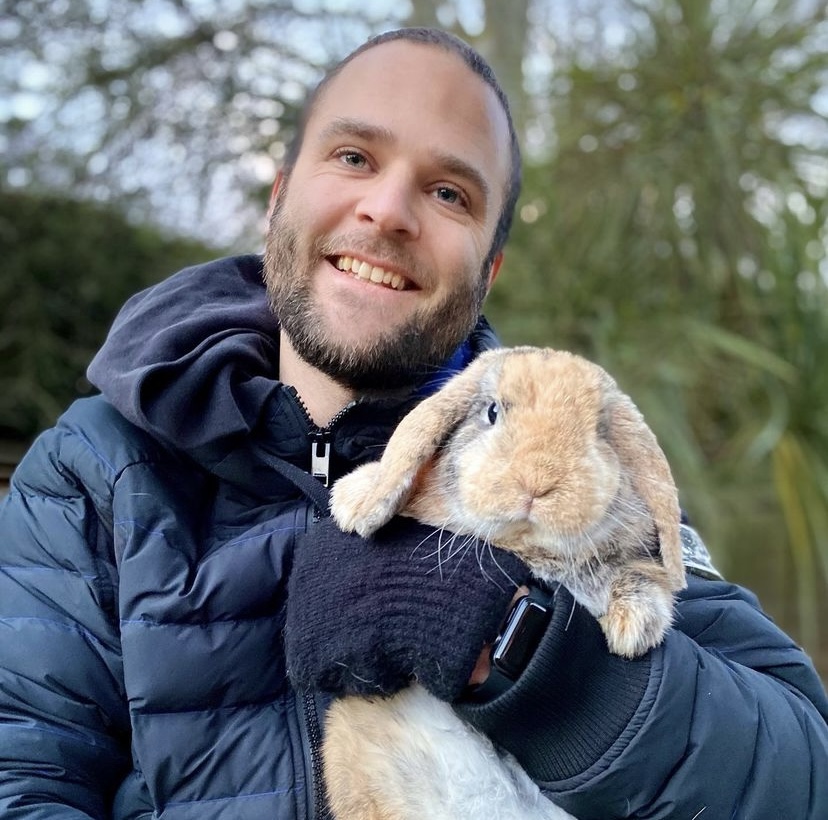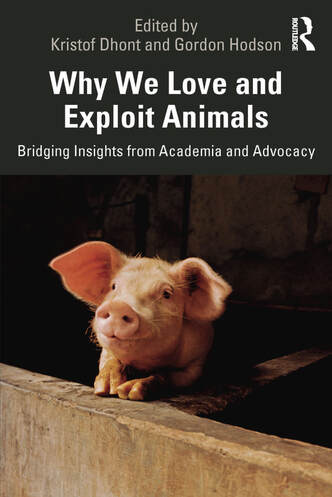
Lab Director
Kristof Dhont, PhD, is a Reader in Psychology and Director of Graduate Studies (Research) in the School of Psychology at the University of Kent. He is the founder and director of SHARKLab, dedicated to the study of human intergroup and human-animal relations, and is co-founder of the Society for the Psychology of Human-Animal Intergroup Relations (PHAIR Society). He served as Associate Editor for the journal Group Processes & Intergroup Relations (GPIR) and as Consulting Editor for the European Journal of Personality (EJP).
Kristof’s research interests include the situational and personality factors that drive and sustain intergroup biases such as ethnic and gender-based prejudice as well as speciesism, with a special interest in social-ideological variables (e.g. social dominance orientation and authoritarianism) and identity-based processes.
He also investigates the factors shaping people’s perceptions of and thinking about animals, the complexities and paradoxes in human-animal relations, and the moral psychology of eating and exploiting animals. Some of the key questions concern:
- How do people perceive and think about animals as a social outgroup (or multiple outgroups)?
- Why do people love and care about animals, yet also eat and exploit them?
- How can prejudice towards human and non-human animals be reduced, for instance through positive intergroup contact and increasing empathy?
- What are the implications of our attitudes and behaviors toward animals for human intergroup relations?
Other research interests include the impact of contextual factors such as societal intergroup norms and threat on ideology and intergroup attitudes and the psychological factors that motivate people to support social change.
Email: K.Dhont@Kent.ac.uk
OUT NOW: Why We Love and Exploit Animals: Bridging Insights from Academia and Advocacy.
- Dhont, K., & Hodson, G. (Eds.) (2020). Why we love and exploit animals: Bridging insights from academia and advocacy. Routledge. [Available here: LINK]
- Special Issue: Dhont, K., Hodson, G., Loughnan, S., & Amiot, C. (Eds.) (2019). (De)Valuing Animals: Intergroup Perspectives on Human-Animal Relations. Group Processes & Intergroup Relations, 6.
Selected Publications
- Dhont, K., & Ioannidou, M. (2024). Similarities and differences between vegetarians and vegans in motives for meat-free and plant-based diets. Appetite, 195, 107232. https://doi.org/10.1016/j.appet.2024.107232
- Dhont, K., & Ioannidou, M. (2024). Health, environmental, and animal rights motives among omnivores, vegetarians, and vegans and the associations with meat, dairy, and egg commitment. Food Quality and Preference 118, 105196. https://doi.org/10.1016/j.foodqual.2024.105196
- Leach, S., Sutton, R. M., Dhont, K., Douglas, K. M., & Bergström, Z. (2023). Changing minds about minds: Evidence that people are too sceptical about animal sentience. Cognition, 230, 105263. https://doi.org/10.1016/j.cognition.2022.105263
- Salmen, A., & Dhont, K. (2023). Animalizing women and feminizing (vegan) men: The psychological intersections of sexism, speciesism, meat, and masculinity. Social and Personality Psychology Compass, 17(2), e12717. https://doi.org/10.1111/spc3.12717
- Leach, S., Piazza, J., Loughnan, S., Sutton, R.M., Kapantai, I., Dhont. K., & Douglas., M.K. (2022). Unpalatable truths: Commitment to eating meat is associated with strategic ignorance of food-animal minds. Appetite, 171(1), 105935. https://doi.org/10.1016/j.appet.2022.105935
- Dhont, K., Piazza, J., & Hodson, G. (2021). The role of meat appetite in willfully disregarding factory farming as a pandemic catalyst risk. Appetite, 164, 105279. https://doi.org/10.1016/j.appet.2021.105279
- Leach, S., Sutton, R., Douglas, K., & Dhont, K. (2021). The ‘me’ in meat: Does affirming the self make eating animals seem more morally wrong? Journal of Experimental Social Psychology, 95. doi:10.1016/j.jesp.2021.10413.
- Leach, S., Sutton, R. M., Dhont, K., & Douglas, K. M. (2021). When is it wrong to eat animals? The relevance of different animal traits and behaviours. European Journal of Social Psychology, 51, 113-123. https://doi.org/10.1002/ejsp.2718
- Krings, V. C., Dhont, K., & Salmen, A. (2021) The Moral Divide between High- and Low-Status Animals: The Role of Human Supremacy Beliefs. Anthrozoos. https://doi.org/10.1080/08927936.2021.1926712
- Salmen, A. & Dhont, K (in press). Hostile and benevolent sexism: The differential roles of human supremacy beliefs, women’s connection to nature, and the dehumanization of women. Group Processes & Intergroup Relations https://doi.org/10.1177/1368430220920713
- Dhont, K., Hodson, G., Leite, A.C., & Salmen, A. (2020). The psychology of speciesism. In K. Dhont & G. Hodson (Eds.) Why we love and exploit animals: Bridging insights from academia and advocacy (pp. 29-49). Routledge.
- Meleady, R., Crisp, R. J., Dhont, K., Hopthrow, T., & Turner, R. N. (2020). Intergroup contact, social dominance and environmental concern: A test of the cognitive-liberalization hypothesis. Journal of Personality and Social Psychology, 118(6), 1146–1164
- Dhont, K., Hodson, G., Loughnan, S., & Amiot, C. E. (2019). Rethinking human-animal relations: The critical role of social psychology. Group Processes & Intergroup Relations, 22, 769-784.
- Leite, A.C., Dhont, K., & Hodson, G. (2019). Longitudinal effects of human supremacy beliefs and vegetarian threat on moral exclusion (vs. inclusion) of animals. European Journal of Social Psychology, 49, 179-189. [LINK]
- Dhont, K., Hodson, G., Leite, A.C. (2016). Common ideological roots of speciesism and generalized ethnic prejudice: The Social Dominance Human-Animal Relations Model (SD-HARM). European Journal of Personality, 30, 507-522.
- Hodson, G., & Dhont, K. (2015). The person-based nature of prejudice. Individual difference predictors of intergroup negativity. European Review of Social Psychology, 26, 1-42.
- Dhont, K., & Hodson, G. (2014). Why do right-wing adherents engage in more animal exploitation and meat consumption? Personality and Individual Differences, 64, 12-17. DOI: http://dx.doi.org/10.1016/j.paid.2014.02.002

